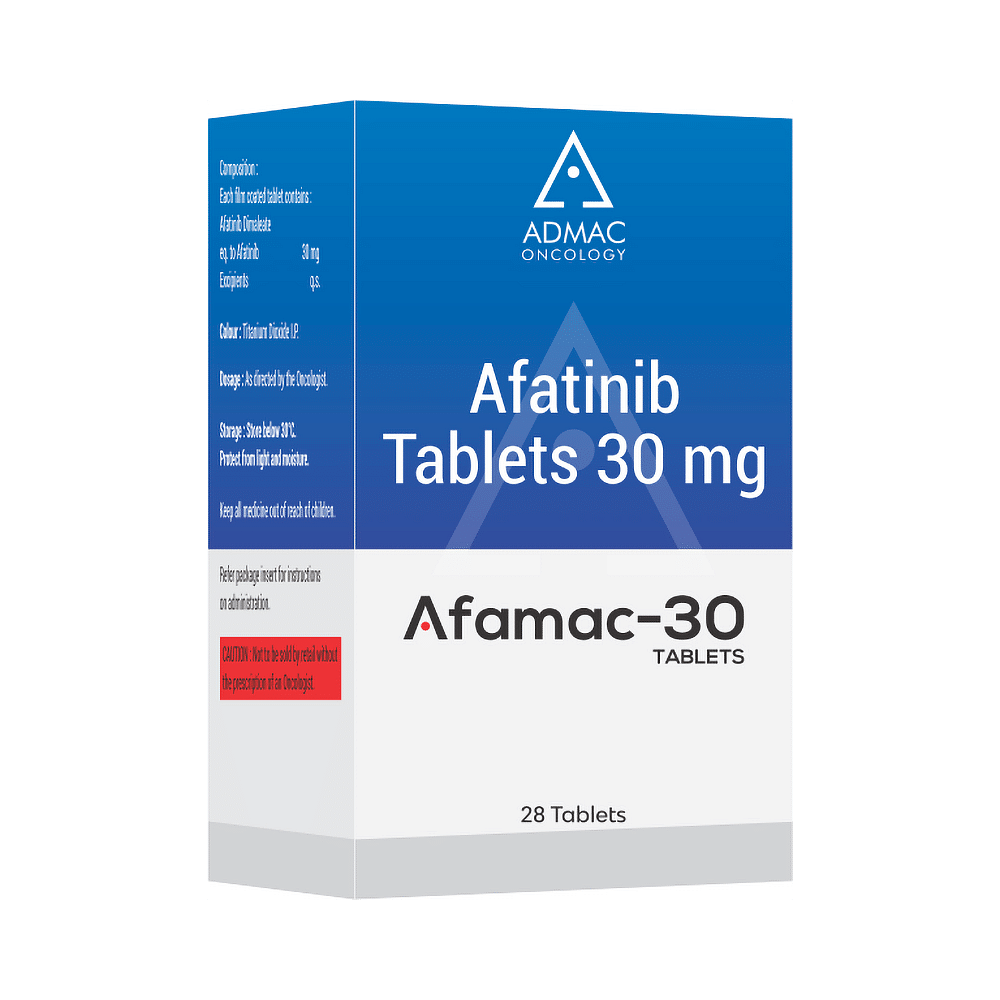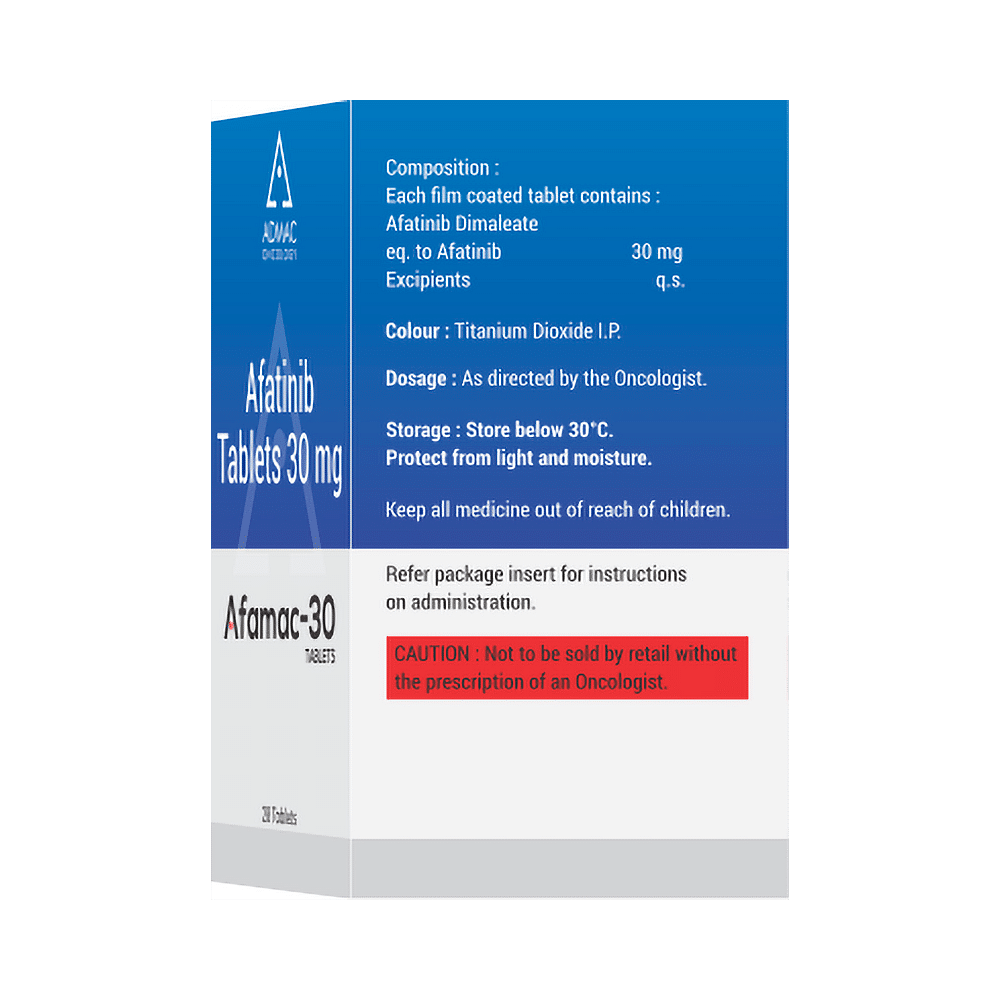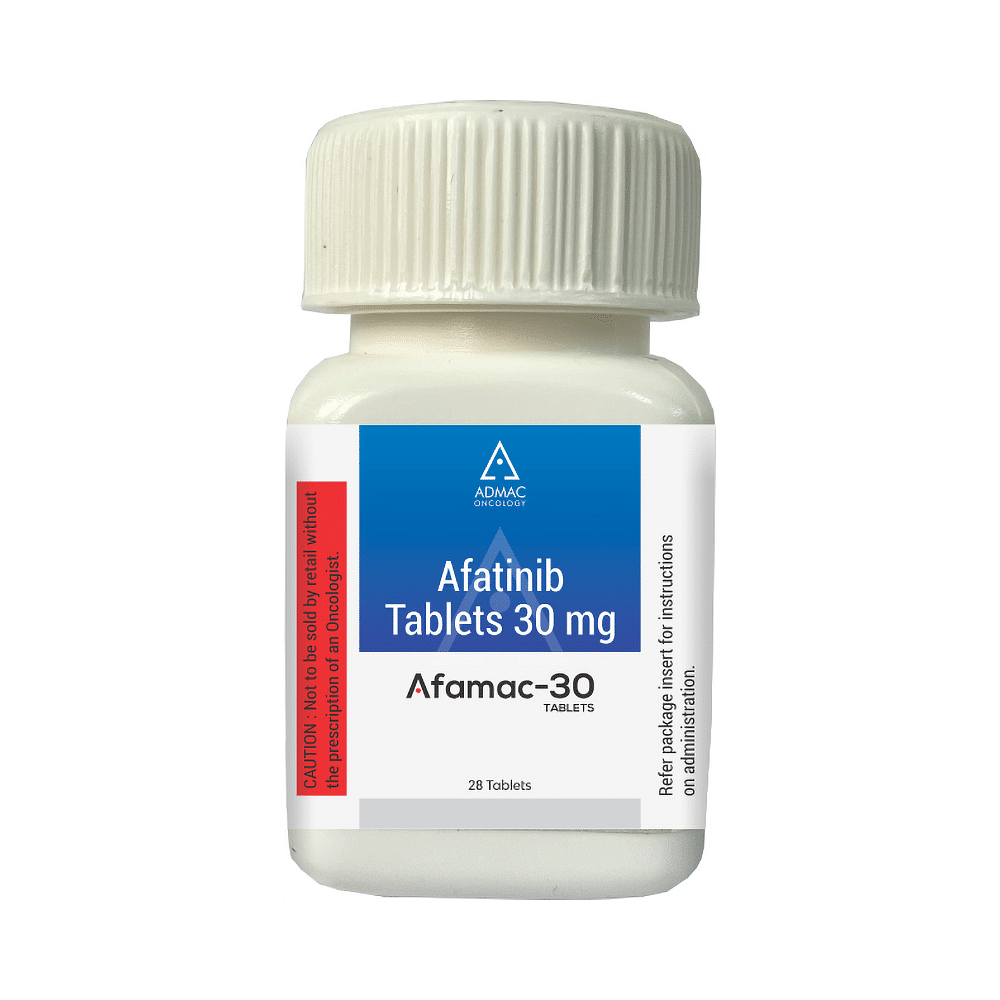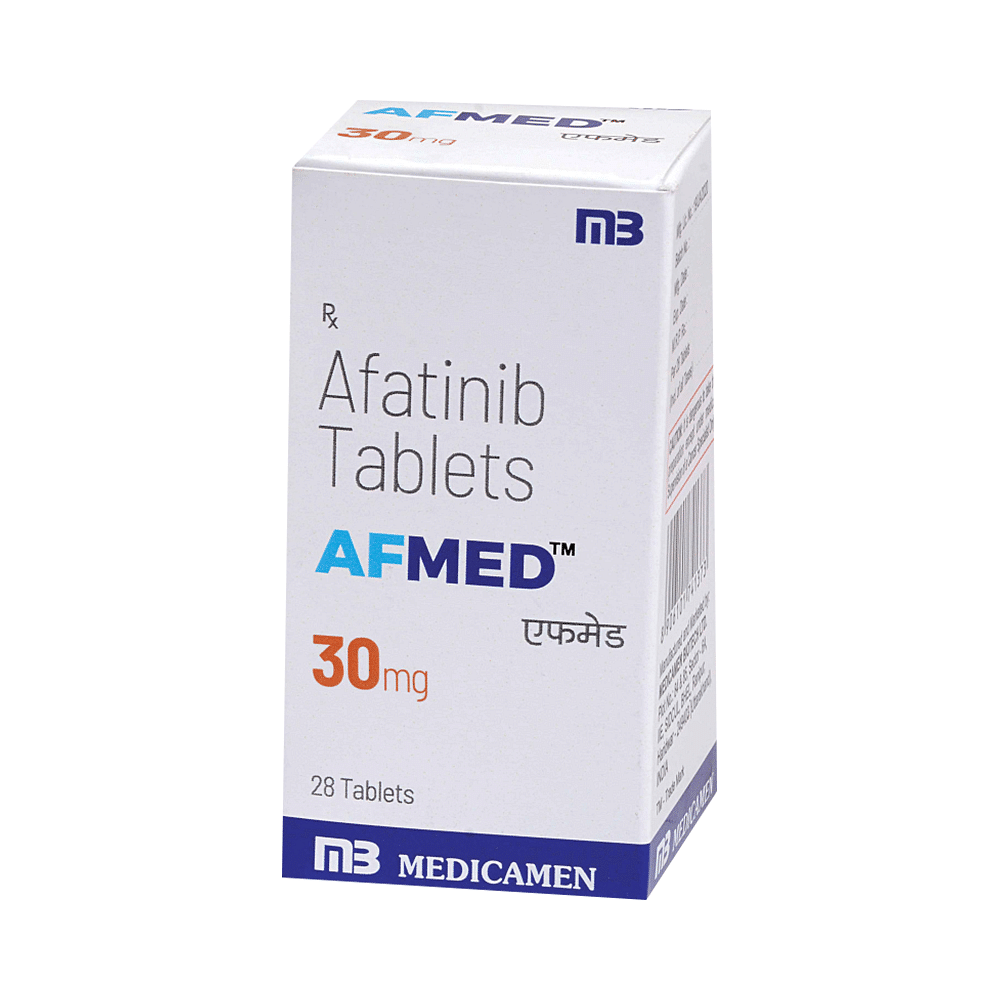


Afamac 30 Tablet
Manufacturer
Admac Pharma Ltd
Salt Composition
Afatinib dimaleate (30mg)
Key Information
Short Description
Afamac 30 Tablet is used in the treatment of non-small cell lung cancer in adult patients with certain mutations of epidermal growth factor receptor (EGFR).
Dosage Form
Tablet
Introduction
Afamac 30 Tablet should be taken on an empty stomach, but try to have it at the same time every day to get the most benefits. Your doctor will decide what dose is necessary and how often you need to take it. This will depend on what you are being treated for and may change from time to time. You should take it exactly as your doctor has advised. Taking it in the wrong way or taking too much can cause very serious side effects. It may take several weeks or months for you to see or feel the benefits but do not stop taking it unless your doctor tells you to.
Directions for Use
Take this medicine in the dose and duration as advised by your doctor. Swallow it as a whole. Do not chew, crush or break it. Afamac 30 Tablet is to be taken empty stomach.
How it works
Afamac 30 Tablet is an anti-cancer medication. It works by binding and inhibiting the enzyme receptors (EGFR, HER2, and HER4) that are responsible for the growth of cancer cells. Hence, resulting in the downregulation of signaling pathways. This is how it stops or slows the spread of cancer.
Quick Tips
Take Afamac 30 Tablet on an empty stomach at least 1 hour before a meal or 2 hours after a meal. Diarrhea is common with Afamac 30 Tablet and may sometimes be severe. Your doctor may prescribe medicines to treat diarrhea. Stay hydrated and take this medicine exactly as directed. Afamac 30 Tablet can make your skin sensitive to the sun. Limit your time in the sun. Use sunscreen and wear protective clothing if you have to be in sunlight. Afamac 30 Tablet can cause redness, rash, and acne. Get treatment for skin reactions as soon as you notice them. Use a reliable contraceptive method to prevent pregnancy while you are taking this medicine and for a month after you stop taking it. Monitor your blood pressure regularly while taking this medication. Inform your doctor if you notice symptoms of very high blood pressure such as severe headache, confusion, problems with your eyesight, nausea or vomiting. Do not take this medicine if you are pregnant, planning to conceive or breastfeeding.
Related Medicines

Afmed 30mg Tablet

Xovoltib 30mg Tablet

Afzeta 30mg Tablet

Afatin 30mg Tablet

Afadel 30 Tablet

Afayro 30 Tablet

Afanat 30 Tablet
Frequently asked questions
Is Afamac 30 Tablet an immunotherapy or chemotherapy?
Afamac 30 Tablet is a kinase inhibitor, not immunotherapy or chemotherapy. It works by inhibiting specific proteins involved in the growth and spread of cancer cells.
How long does it take for Afamac 30 Tablet to work?
The peak concentration of Afamac 30 Tablet is reached within 2-5 hours after administration. However, it can take weeks or months to notice a clear change in cancer progression. Symptoms may improve, but definitive evidence of effectiveness requires specific monitoring and analysis.
How should I take Afamac 30 Tablet?
Afamac 30 Tablet is taken orally without food at least one hour before or three hours after meals. Swallow the tablet entirely with water; do not crush or break it. Take this medicine once daily around the same time each day to make remembering easier.
Does Afamac 30 Tablet affect fertility?
Afamac 30 Tablet may decrease fertility in both men and women. If you have concerns about fertility, consult your doctor for advice on sperm or egg preservation before starting treatment.
Can Afamac 30 Tablet be given alongside chemotherapy?
There is no existing research indicating the use of Afamac 30 Tablet in combination with other chemotherapy medications. It's specifically indicated for treating specific types of lung cancer after previous chemotherapy has been ineffective.
Can Afamac 30 Tablet cure lung cancer?
Afamac 30 Tablet cannot cure lung cancer but can prolong survival and potentially decrease tumor size. It's important to discuss treatment goals with your doctor.
What should I avoid while taking Afamac 30 Tablet?
Afamac 30 Tablet may increase sun sensitivity, leading to increased risk of sunburn or skin reactions. Always use sunscreen and wear protective clothing when exposed to sunlight.
Can I do something if I experience diarrhea from Afamac 30 Tablet?
Diarrhea is a common side effect of Afamac 30 Tablet. If you have severe diarrhea, it can lead to dehydration and kidney problems that are life-threatening. Start drinking fluids as soon as possible and contact your doctor immediately. Your healthcare provider will start appropriate antidiarrheal treatment (e.g., loperamide) promptly.


